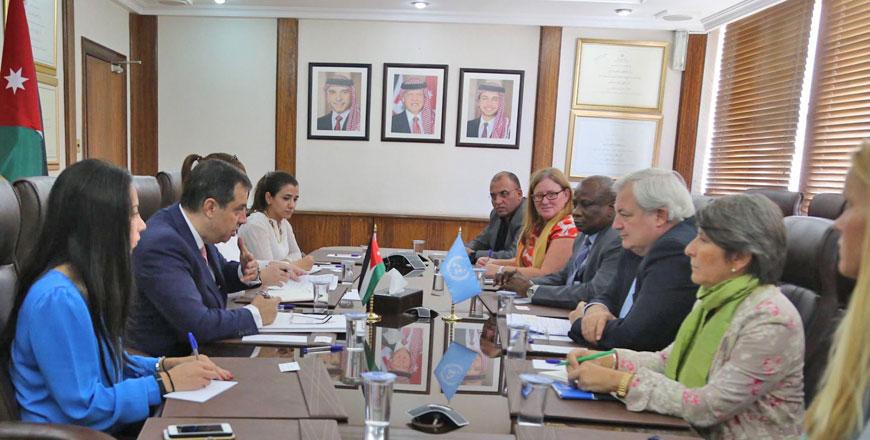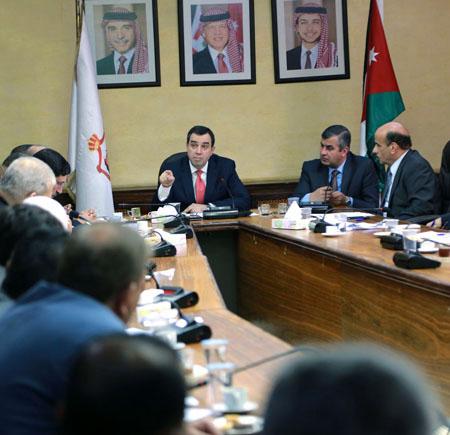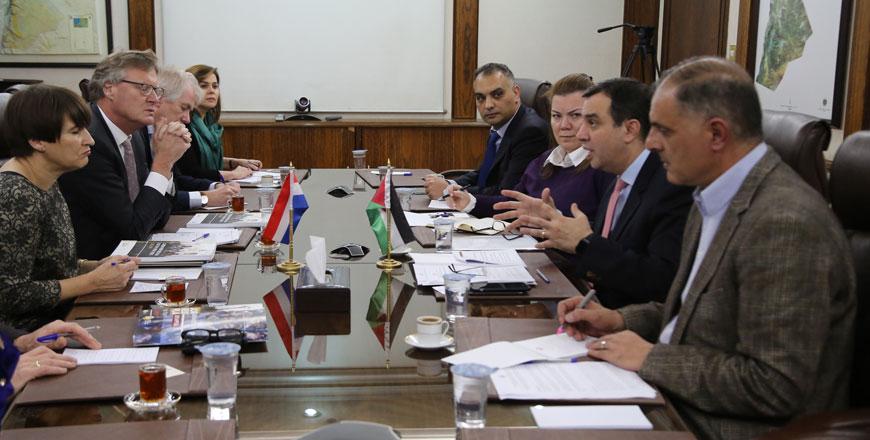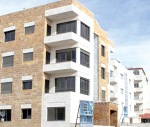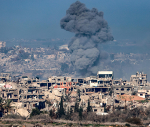You are here
Donor nations’ envoys briefed on Jordan 2025, Syrian crisis response plan
By JT - May 19,2015 - Last updated at May 19,2015
AMMAN — Minister of Planning and International Cooperation Imad Fakhoury on Tuesday briefed envoys of donor nations’ on the “Jordan 2025” blueprint and support needed for the Syrian crisis response plan at a meeting hosted by the Canadian embassy.
The meeting, held in coordination with UN Resident and Humanitarian Coordinator in Jordan Edward Kallon, aimed at garnering support for joint efforts to boost aid coordination and efficiency to alleviate the burden of the Syrian crisis by funding projects incorporated in Jordan’s 2015 Response Plan, according to a Ministry of Planning and Internationa Cooperation statement.
Representatives from UN organisations, ambassadors of Arab and foreign countries and heads of international bodies and development agencies took part in the meeting.
Fakhoury also briefed attendees on Jordan 2025, a blueprint that charts a path to the future and sets a general, integrated outline that would govern socio-economic policies, based on opportunities for all, the statement said.
Among the key tenets of the document are promoting the rule of law, equal opportunities and increased partnership in formulating policies, achieving financial sustainability and strengthening institutions.
The minister said the blueprint was a beacon for the strategic programme’s priorities for the present and the next governments, in addition to being a strategic basis through which financial and technical aid offered by donors would be coordinated.
He added that drafting was under way for the first executive programme (2016-2018), which would practically translate national priorities outlined by the blueprint.
This programme would be laid out within a participatory framework involving government agencies and the private sector and civil society entities, according to the statement.
Fakhoury stressed that donors should be given full attention to offer technical contributions and necessary support to implement and fund priority projects that the programme will incorporate.
He said follow-up and implementation were clearly key areas of interest as a Prime Ministry unit tasked with following up on the achievement of these goals, had been reactivated and would oversee and assess priority programmes and national initiatives.
Fakhoury said work was also in progress for drafting the 2016-2018 governorates’ development programmes, whose output would reflect as inputs in the 2016-2018 executive development programme.
The minister reviewed the repercussions of hosting a huge number of Syrian refugees, which, he said, had posed additional burdens on the treasury, particularly subsidised commodities, as well as the water, education, health and energy sectors.
He also stressed the importance of the international community’s support for Jordan through direct support to the government to minimise the huge impact caused by the Syrian refugee crisis on the national economy, noting that only 9.6 per cent of the total value of the 2015 plan’s projects had been funded.
The next three-year response plan (2016-2018) is in the drafting process with participation of UN and donor organisations, which would also provide a longer-term vision and ease the process of constant reviews and updates, the minister noted during the meeting.
He acquainted the attendees with the road map and steps being considered for drafting this plan, emphasising the participatory approach and expanding participation to encompass the private sector and local communities.
Kallon commended the Kingdom’s continued provision of support and aid to the Syrian refugees, saying he understood the challenges facing the Kingdom and the burdens it is shouldering as a result of hosting them.
The UN official also voiced his appreciation of the progress the government has made and the efficiency of coordination with all concerned authorities, the statement said.
He pledged continued support by UN organisations in promoting the plan and attracting funding through available mechanisms, including the credit fund for supporting the response.
Kallon also stressed the importance of a favourable response by the international community to enable the government to determine aid and set priorities.
The attendees pledged their support for the Jordan response plan 2015 and the road map to start drafting the 2016-2018 response plan, saying they would continue to provide the necessary funding for the Kingdom to deal with the crisis in the best possible way.
They also promised to offer technical assistance to enable the ministry and taskforces carry out their roles in a professional fashion.
Related Articles
AMMAN — The government is preparing the Jordan Response Plan (JRP) 2017-2019 to include all sectors and build on the outcomes of the London
AMMAN — Minister of Planning and International Cooperation Imad Fakhoury on Monday chaired the first meeting of the coordinating committee o
AMMAN — Minister of Planning and International Cooperation Imad Fakhoury on Sunday highlighted the government's measures to follow up on the


